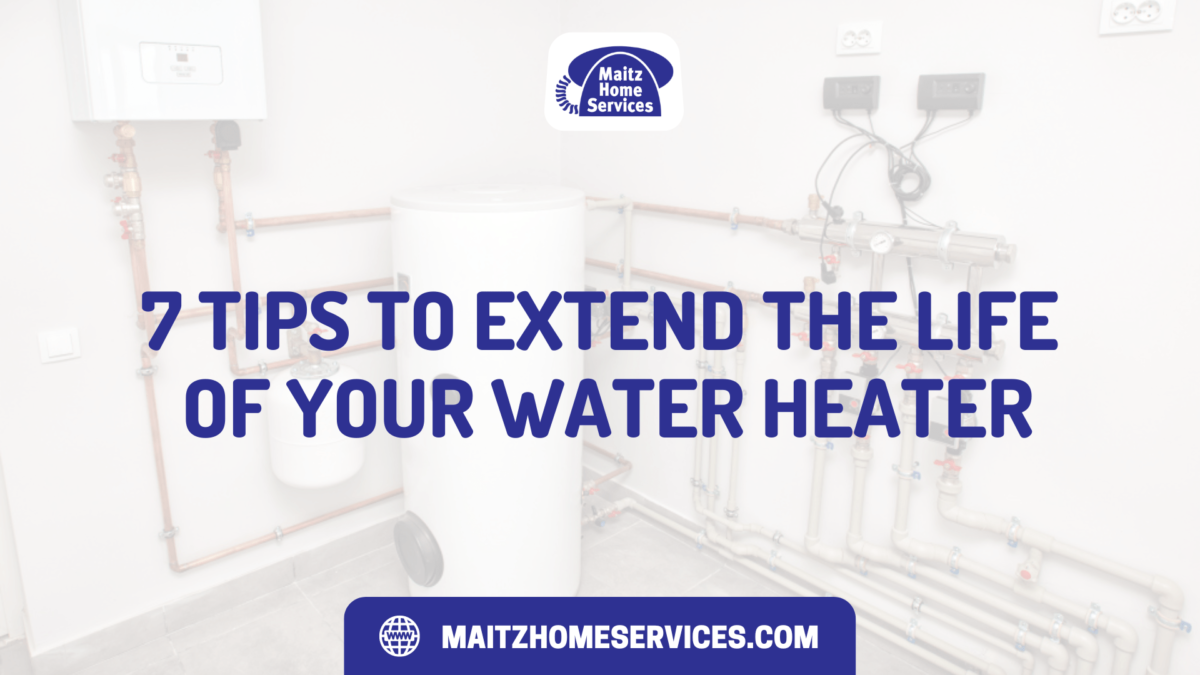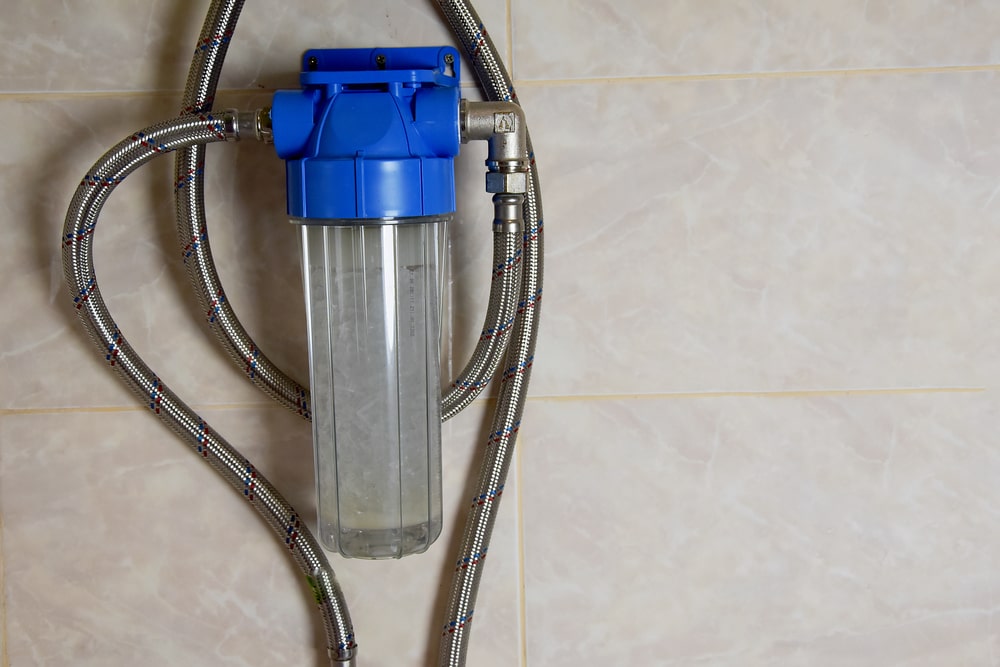
Installing a new water heater is no small investment. That’s why you should make every effort to maintain your current water heater, so it lasts as long as possible. If you need some practical tips to keep your unit in tip-top shape, check out our guide below.
Maximize Your Water Heater’s Lifecycle in 7 Easy Steps
1. Maintenance Checks

Performing routine, preventative maintenance is the best way to extend the life expectancy of your water heater. It allows you to:
- Repair and replace damaged or broken components
- Improve the unit’s energy efficiency
- Check for any leaks to prevent costly water damage
2. Flush Your Water Heater
Over time, sediment collects at the bottom of the water tank and causes overheating. Overheating can damage components, which shortens the unit’s lifespan. Flushing the water tank at least once annually removes any sediment build-up and reduces the unit’s risk of overheating.
3. Choose the Right Temperature
The higher you set the temperature of your water heater, the more pressure builds in the tank. Setting the temperature too high creates excess pressure that can cause an explosion. Maintain a median temperature to prevent the internal pressure from exceeding a healthy level and putting your family in danger.
4. Install a Water Softener

Hard water contains a high mineral content that can corrode metal components in the water heater. Installing a water softener removes a large portion of those minerals to minimize the water’s corrosive effect. This softening process reduces the risk of your water heater corroding so much that leaks form. A water softener also increases your water quality and decreases your monthly water bill.
5. Check the Pressure Relief Valve
The pressure relief valve is a built-in safety measure that releases pressure from the tank when it gets too high. When the pressure exceeds a safe level, the pressure relief valve automatically kicks in to prevent leaks and even an explosion due to excess internal pressure.
To ensure the pressure relief valve is working correctly, push up the lever located either at the top or side of the unit to see if water exits the discharge pipe. If water comes out, the discharge pipe is in good condition. If water doesn’t come out, the unit needs a new discharge pipe.
6. Check the Anode Rod
The anode rod removes rust from the water tank to prevent corrosion. Check your water heater’s anode rod to ensure it’s working properly. A malfunctioning or broken anode rod allows rust to form that eats away at the water tank’s metal interior.
7. Be Aware of Any Strange Sounds or Odors
While gurgling and groaning sounds are normal, any grinding or screeching noises are a potential red flag. These sounds could result from a loose component that simply needs to be tightened, but they could also be caused by a malfunctioning or broken component that needs more attention.
Likewise, a gas water heater that produces a gas or burning smell is also a cause for concern. The drain hose might be dirty or clogged, or the nozzle might need repairs.
Contact Maitz Home Services for All Your Water Heater Needs
Schedule your annual water heater maintenance with the licensed plumbers at Maitz Home Services. As Allentown’s #1 plumbing contractor, we offer the top-notch maintenance and repair services you need to keep your water heater in prime condition for years to come.

